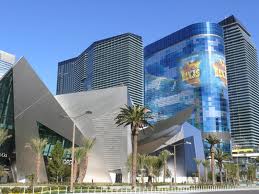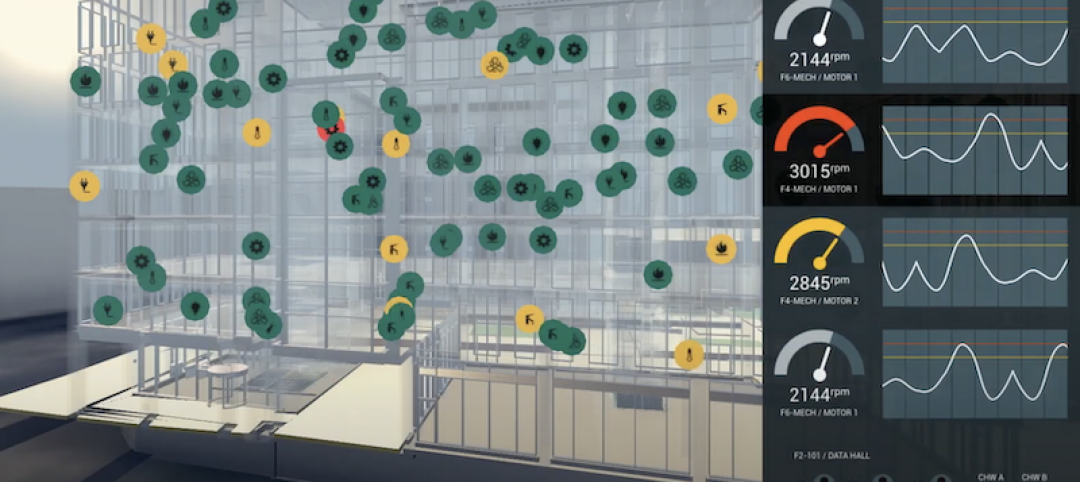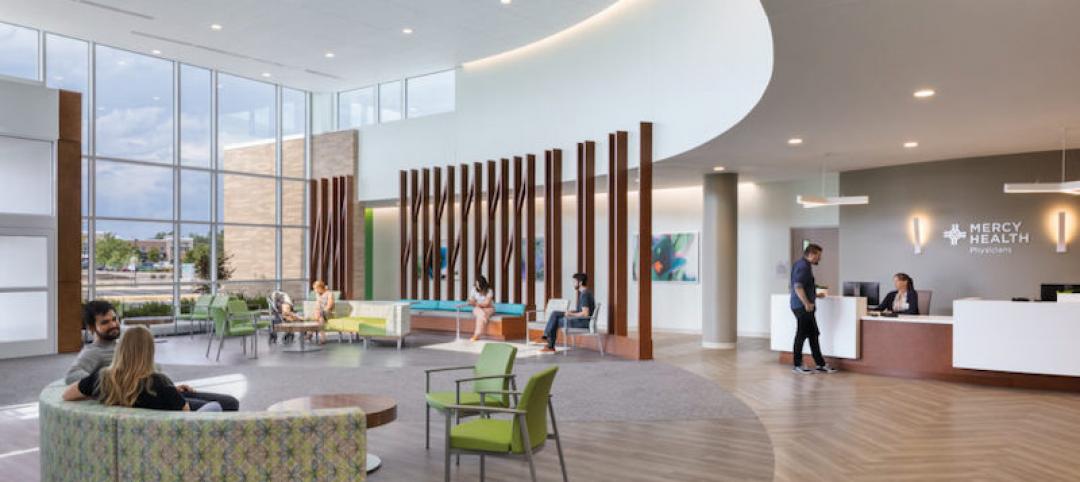MGM Resorts International shareholders and bondholders have filed an amended class-action lawsuit in hopes of recovering losses from the decline of the Las Vegas company’s stock and bond prices between 2007 and 2009.
Two and a half years ago, stockholders filed six lawsuits after the stock price fell from $99.75 on Oct. 9, 2007, to $1.89 on March 5, 2009. Bondholders sued over similar steep losses.
The securities holders complained the prices fell because of problems related to the global recession as well as undisclosed cost overruns, construction problems, and financial difficulties MGM Resorts faced with its half-owned $8.5 billion CityCenter casino resort complex on the Las Vegas Strip.
The lawsuits complained that MGM Resorts officials failed to promptly disclose many of these problems, causing the stock and bond prices to be inflated before they tumbled once the market realized how serious the issues were.
U.S. District Judge Gloria Navarro in Las Vegas on March 27 dismissed two of the suits, saying they weren’t specific enough.
The shareholders and bondholders responded Tuesday by filing an amended combined lawsuit with more specific allegations about what certain MGM Resorts officials told shareholders, bondholders and analysts in presentations and in earnings reports and conference calls in 2007, 2008, and 2009.
The amended suit says 10 confidential witnesses have provided detailed information to the shareholders’ attorneys about CityCenter construction and financing problems.
The suit says these witnesses are executives who served as a vice president of global sourcing for MGM Resorts, an MGM director of construction management and finance, an MGM design project manager, an MGM corporate finance officer, an MGM financial analyst, an MGM internal audit director, an MGM lead project manager, a cost engineer for general contractor Perini Building Co., a project control director for contractor Tishman Construction and an engineer on the podium portion of the Harmon Hotel, where construction remains halted because of construction defects.
Based on information from these witnesses, the shareholders allege that as early as August 2007 MGM Resorts officials falsely told shareholders that construction was “progressing nicely” on CityCenter and that it was “on budget.”
The shareholders allege these statements were false because much of CityCenter was being designed as it was being built, sometimes forcing contractors to remove components and then rebuild them according to updated designs.
“Constant design changes while construction was already in progress led to increasing construction costs,” the suit says, citing information from one of the confidential witnesses.
One witness “confirmed that MGM’s construction estimates were underestimated from the very beginning of the project because the design drawings were not completed and the exact quantity and grade of materials was not known to Perini when it made its initial bids (the bids on which MGM’s estimates were based),” the suit says. “After Perini submitted its bids, MGM changed the designs, increasing the quantity, grade and price of materials required, thereby increasing the construction costs.”
“The publicly announced construction costs for CityCenter were purposely underestimated. This was so because, while Perini provided accurate cost estimates to MGM, MGM and Tishman arbitrarily reduced those estimates by 20 percent when formulating CityCenter’s estimated construction costs to be reported to the public,” the suit charges.
The shareholders complained that CityCenter was “plagued by construction problems” including at the Harmon, where the suit says major issues were apparent as early as March 2008 but weren’t disclosed until January 2009.
The suit says that even when CityCenter was described as a $7.4 billion project in 2007, MGM Resorts was facing difficulties in finalizing $3 billion in financing for it.
That’s because just as the credit markets were tightening in response to the global recession, MGM Resorts was being squeezed by the declining value of CityCenter as well as a slowdown in visitation to Las Vegas that was reducing its revenue and cash flow.
“CityCenter would prove much more costly to MGM — and its shareholders — than ever disclosed by defendants. In fact, MGM’s crown jewel project would prove to be a virtual black hole, bringing the company to the brink of bankruptcy and causing its investors to suffer massive losses,” the suit complained.
The shareholders and bondholders in Tuesday’s amended complaint are pension funds, including the Arkansas Teacher Retirement System, the Philadelphia Board of Pensions and Retirement, the Luzerne County (Pa.) Retirement System and Netherlands-based pension fund manager PMT.
They claim to have lost about $6.7 million on their MGM Resorts investments and hope to recover their losses and the unspecified losses of others who bought MGM Resorts securities between Aug. 7, 2007, and March 5, 2009.
MGM Resorts – then called MGM Mirage – eventually finalized financing for CityCenter and beefed up its own balance sheet with a series of debt and equity issuances beginning in 2009.
The company has denied the shareholders’ allegations that it failed to disclose problems with the construction and financing of CityCenter; and it’s unknown when or how the shareholder lawsuits will be resolved. BD+C
Related Stories
Multifamily Housing | Jun 3, 2021
Student Housing Trends 2021-2022
In this exclusive video interview for HorizonTV, Fred Pierce, CEO of Pierce Education Properties, developer and manager of off-campus student residences, chats with Rob Cassidy, Editor, MULTIFAMILY Design + Construction about student housing during the pandemic and what to expect for on-campus and off-campus housing in Fall 2021 and into 2022.
Architects | Jun 2, 2021
Two new practice leaders appointed at FGM Architects
FGM Architects appoints Jan Behounek to lead Higher Education and Scott Nall to lead Federal Practice.
Building Technology | Jun 1, 2021
Orro Announces Google Nest Integration for the Orro Switch
Orro, creators of the professional-grade top-of-the-line Orro Smart Living System, today announced the integration of Nest products to Orro. As a certified partner in Google’s Device Access program, this latest Orro integration allows homeowners to have seamless control and access to Nest thermostats and doorbells from any Orro Switch throughout the home – creating a single unified smart home system with advanced, intelligent ambient control.
High-rise Construction | May 27, 2021
The anti-high rise: Seattle's The Net by NBBJ
In this exclusive video interview for HorizonTV, Ryan Mullenix, Design Partner with NBBJ, talks with BD+C's John Caulfield about a new building in Seattle called The Net that promotes wellness and connectivity.
Digital Twin | May 24, 2021
Digital twin’s value propositions for the built environment, explained
Ernst & Young’s white paper makes its cases for the technology’s myriad benefits.
Senior Living Design | May 19, 2021
Senior living design: Post-COVID trends and innovations
Two senior living design experts discuss the latest trends and innovations in the senior living building sector.
Multifamily Housing | May 18, 2021
Multifamily housing sector sees near record proposal activity in early 2021
The multifamily sector led all housing submarkets, and was third among all 58 submarkets tracked by PSMJ in the first quarter of 2021.
Wood | May 14, 2021
What's next for mass timber design?
An architect who has worked on some of the nation's largest and most significant mass timber construction projects shares his thoughts on the latest design trends and innovations in mass timber.
Architects | May 10, 2021
Industry icon Art Gensler dead at 85
He was credited with creating a model for the modern, growth-oriented professional services organization.
Healthcare Facilities | Apr 30, 2021
Registration and waiting: Weak points and an enduring strength
Changing how patients register and wait for appointments will enhance the healthcare industry’s ability to respond to crises.

















